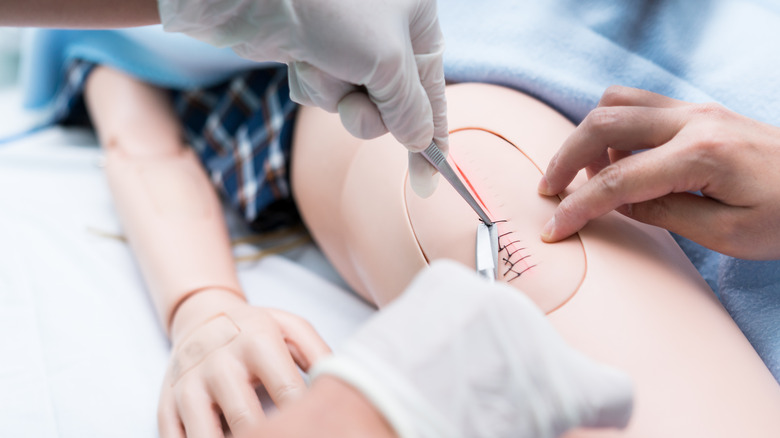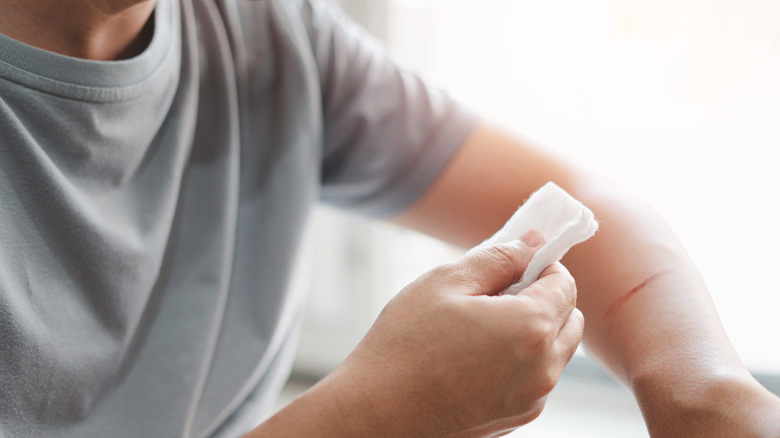How To Tell If You Need To Get Stitches
Everyone gets minor cuts and scrapes at some point in their lives, but some wounds require more medical attention than others. That's why it's important to assess the damage before you rush off to the ER (via Healthline). Whether or not you need stitches partly depends on the size and location of your cut or laceration. You'll likely need stitches if your cut is wide, deeper or longer than half an inch, or deep enough that muscle or bone is exposed. Lacerations across a joint or near the eyes and genitals require immediate evaluation and will likely need sutures or stitches.
The cause of your wound and the amount of blood it produces can also determine whether or not you'll need stitches or any other medical intervention. For instance, if your wound was caused by an animal bite, you might need stitches and a tetanus shot. Lacerations caused by rusty nails or wounds containing pieces of broken glass should also be looked at by a doctor. Cuts that bleed profusely for longer than 10 minutes may also need stitches. If your wound is spurting blood, you've likely severed an artery and will require emergency medical care.
What to do before you go to the ER
Before you go to the ER or urgent care, there are few things you may need to do to temporarily treat or take care of your wound. For instance, you may want to apply pressure to your wound on the way to the hospital, depending on how much it's bleeding (via WebMD). Applying pressure with a towel or bandage can help slow or even stop the bleeding. You should also clean and disinfect the wound if you can. This can help prevent infection. Instead of using hydrogen peroxide, run tap water over your cut or laceration and pat it dry. Afterwards, you can apply a clean bandage to help protect it from the elements.
However, if your wound is caused by a foreign object, like a nail or piece of metal, sticking through your skin, you should leave it in. Taking it out could cause further damage. "You don't know what the foreign object has struck underneath," emergency physician Dr. Baruch Fertel told the Cleveland Clinic. "More than once, I've seen cases where the object has struck an artery and is blocking the bleeding. The moment you pull it out, there's no longer anything there to block the arterial blood flow and this can cause devastating consequences."


